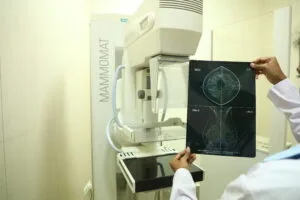Facts about Prostate Cancer Screening

The decision to take a PSA test is influenced by a number of circumstances. Here are some pointers to assist you in making an informed selection.
Prostate-specific antigen (PSA) tests, check for indicators of prostate cancer.
Screening for prostate cancer can aid in the early detection of the disease, making the treatment highly effective. A normal PSA test combined with a digital rectal exam can help ensure that prostate cancer is unlikely.
However, for some men, particularly those aged 70 and up, a PSA test for prostate cancer may not be required.
Professional organizations have differing opinions on who should and should not get a PSA screening test. While some have clear rules, others leave it up to men and their doctors to make the decision. PSA screening is commonly recommended for males between the ages of 50 and 70, as well as for men who are at an elevated risk of prostate cancer.
Consequently, you should decide whether or not to take a PSA test after consulting with your doctor, taking into account your risk factors, and evaluating your personal preferences.
Here’s some extra information to help you prepare for a PSA test discussion with your doctor.
What is PSA?
Both diseased (malignant) and noncancerous (benign) prostate tissue produce prostate-specific antigen (PSA). PSA aids in the liquefaction of sperm. PSA generally reaches the bloodstream in low quantities.
PSA levels in the blood grow when prostate cancer cells produce more PSA than benign cells. PSA levels, on the other hand, might be increased in men who have enlarged or inflamed prostate glands. As a result, figuring out what a high PSA score signifies can be difficult.
Besides the number itself, doctors consider a number of other factors to evaluate the PSA scores:
- Age
- Size of the prostate gland
- Rate of change in PSA levels
- Whether you’re using medicines like finasteride (Propecia, Proscar), dutasteride (Avodart), or even herbal supplements that influence PSA measurements.
When elevated PSA isn’t cancer?
While elevated PSA levels can be a symptom of prostate cancer, they can also be caused by a variety of other conditions. These other factors could result in a “false-positive,” which means a test result that says you have prostate cancer when you don’t.
The following conditions can cause a high PSA level in men who don’t have prostate cancer:
- Prostate enlargement that isn’t harmful (benign prostatic hyperplasia)
- An infection of the prostate (prostatitis)
- Other, less prevalent ailments
- False positives are a common occurrence. Prostate cancer affects roughly 1 in every 4 men who have an abnormal PSA test result.
When does prostate cancer doesn’t cause a rise in PSA?
PSA levels may be low in some prostate cancers, especially those that grow fast. In this instance, you may have a “false-negative” test result, which shows that you don’t have prostate cancer when you actually have.
Because of the complexities of these elements, you should have your condition evaluated by a doctor who is acquainted with interpreting PSA results.
What are the benefits of a PSA test?
Early detection of certain kinds of prostate cancer is crucial. PSA levels above a certain level may indicate prostate cancer that is likely to spread to other regions of your body (metastasize), or they may indicate a cancer that is rapidly progressing and likely to cause additional problems.
Early detection and treatment can help catch cancer before it becomes life-threatening or causes significant symptoms. Early detection of cancer may result in less aggressive treatment, lowering the chance of some side effects such as erectile dysfunction and incontinence.
Digital rectal examination
The PSA test is not the only method for detecting prostate cancer. Another effective approach to check the prostate and look for cancer indications is to perform a digital rectal examination (DRE).
A gloved, lubricated finger is inserted into your rectum by your doctor to feel the prostate for lumps or other abnormalities. It’s a simple test that’s quick, and safe.
A DRE can also be used by your doctor to screen for symptoms of rectal cancer in addition to prostate cancer.
Consider your prostate cancer risk factors
Knowing the risk factors for prostate cancer will help you decide if and when you should start screening for the disease. The following are the key risk factors:
- Age: Prostate cancer becomes more likely as you become older. After the age of 50, your chance of developing prostate cancer rises. Prostate cancer is most common in men over the age of 65.PSA testing is available starting at the age of 40 and continues until you reach the age where your life expectancy is 10 years or less. Once you reach that age, the chances of prostate cancer progressing and causing issues for the rest of your life are small.
- Race: Black males found to have a higher risk of and higher mortality from prostate cancer, for unclear reasons.
- History of the family: If a close relative, such as your father or brother, was diagnosed with prostate cancer before the age of 65, your chances of developing the disease are higher. If numerous of your first-degree relatives — father, brothers, sons — had had prostate cancer while they were young, your risk is very high.
- Diet: Obesity and a high-fat diet may raise your risk of prostate cancer.
What are the recommendations?
| ORGANIZATION | RECOMMENDATION |
| American Urological Association (AUA) | The American Urological Association suggests that men begin discussing PSA screening with their doctors around the age of 55. The AUA does not suggest routine PSA screening for males over the age of 70 or for those with a life expectancy of fewer than 10 to 15 years. |
| American Cancer Society (ACS) | The American Cancer Society suggests that men discuss PSA testing with their doctors before making a decision. According to the ACS, men should consider the pros and cons of the PSA test beginning at age 50 if they have a 10-year life expectancy and are at average prostate cancer risk, at age 45 if they are at high risk, and at age 40 if they are at very high risk of prostate cancer (those with family history of prostate cancer). |
| U.S. Preventive Services Task Force (USPSTF) | Men aged 55 to 69 should consider the advantages and risks of prostate cancer screening with their doctors, according to the USPSTF. In males aged 70 and above, the USPSTF advises against routine testing. |
| Mayo Clinic | Men between the ages of 50 and 70 who have a life expectancy of more than 10 years should be screened for PSA and DRE once a year, according to the Mayo Clinic. Men with prostate cancer risk factors may need to start screening earlier. |
How does it add up?
For some men, a positive PSA test can save their lives by detecting prostate cancer early enough to be treated.
If you’re at a higher risk of prostate cancer, PSA testing is usually a good idea. Not all males, however, require the screening. If you’re among a group of males who are unlikely to benefit from it, you might want to reconsider.
Talk to your doctor after examining the benefits and drawbacks of screening, your age, overall health and risk factors, personal preferences, and what the experts have to say. You can make the best decision for you if you work together.
This article has been adapted from Mayo Clinic and is accessible at: https://www.mayoclinic.org/diseases-conditions/prostate-cancer/in-depth/prostate-cancer/art-20048087



